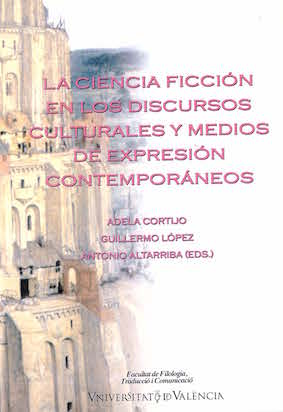El Nadir de la Ciencia Ficción
DOI:
https://doi.org/10.7203/qf-elit.v14i0.4025Keywords:
literary analysis, science-fiction, cyberpunk Abstract
Abstract
Literary genres evolve according to a cycle: they are born, grow up, reproduce and eventually die, but it is not easy to see, in advance, whether a genre is in its death throes or not. However, looking just at the perceived state, science-fiction currently does not look too good. Its Golden Age was way back in the Fifties (of the last century, no less) and even if so-calle sci-fi movies are popular, these are mostly super-hero or space-opera rather than true, science-fact based, science-fiction.
This perception does not imply it is not going to hold. But there are further problems: there are good, but not great science-fiction authors. Many of the most popular have progressively quit sci-fi; William Gibson, harbinger of the cyberpunk genre, is lately a post-modern techno-thriller writer and Neal Stephenson does mainly historical novels. There is even a counter-genre, mundane science-fiction which totally eliminates fake scientific tropes such as faster than light travel or telepathy.
In this article, finally, we will try to revise the state of current science-fiction and estimate the probability of it being in its lowest point, its nadir, and, eventually, about to disappear as a literary genre.
 Downloads
Downloads
Downloads
How to Cite
-
Abstract258
-
PDF (Español)120
Issue
Section
License
 Este obra está bajo una licencia de Creative Commons Reconocimiento-NoComercial-SinObraDerivada 4.0 Internacional.
Este obra está bajo una licencia de Creative Commons Reconocimiento-NoComercial-SinObraDerivada 4.0 Internacional.
Authors who publish with this journal agree to the following terms:
- Authors retain copyright and grant the journal right of first publication with the work simultaneously licensed under a Creative Commons Attribution License that allows others to share the work with an acknowledgement of the work's authorship and initial publication in this journal.
- Authors are able to enter into separate, additional contractual arrangements for the non-exclusive distribution of the journal's published version of the work (e.g., post it to an institutional repository or publish it in a book), with an acknowledgement of its initial publication in this journal.
- Authors are permitted and encouraged to post their work online (e.g., in institutional repositories or on their website) prior to and during the submission process, as it can lead to productive exchanges, as well as earlier and greater citation of published work (See The Effect of Open Access).



